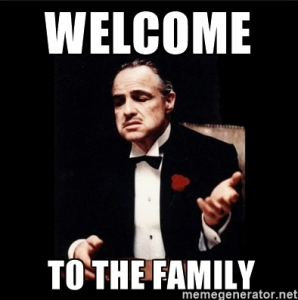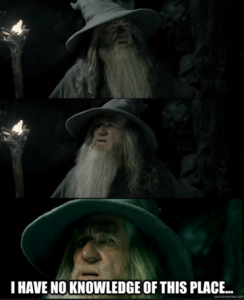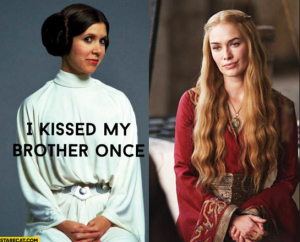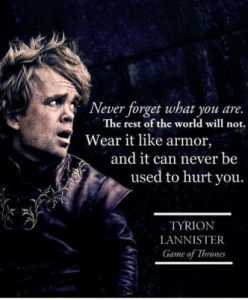What really makes a great story? I read an insane amount and always have, but it really wasn’t until I decided to go pro that I began looking at books very differently. Why were some books so utterly forgettable and others? I couldn’t get out of my head. What made the difference?
Why do I still revisit The Hours, The English Patient, Big, Little Lies, A Girl on the Trail, Gone Girl, The Luckiest Girl Alive? And others? I can’t recall if I even read them. I look at my Kindle menu and it claims I read it but…
This said, I’ve been putting a lot of thought lately into character. Reverse engineering it so that I can better understand what makes it tick. I’ve mentioned the raging debate about character-driven stories versus plot-driven stories and really all great stories are both.
Story is a machine. An engine. And if story is a machine, then plot and character are cogs. If one is flawed or weak or breaks? It cannot help but impact the overall machine.
But today, we are going to focus on the character cog. How do we create characters with resonance?
Who Are You?
Now, I know a lot of writing books recommend doing character sheets. There is nothing wrong with that. Get it out. Free write on the page. Think about who the character is, where she came from. Social class, religion, economic status, childhood, etc. Tell his or her life story and get it down.
But now I want you to dig a little deeper—ok, a LOT deeper—and ask…
What is my character’s paradigm?
This is to say, what is her reality? Her framework? What defines her? And, most importantly, what is its center? How does the character define his or her worth? Because a background sheet is nothing more than facts without context. To create a dimensional character, context is king.
Paradigms offer that context.
Though sociologists and self-help experts have used the notion of paradigms to assist personal growth, as a writer I felt the need to use this idea for a far darker purpose. Instead of using the paradigm to fix messed up people, I use it to create them.
So I bring you…
The Seven Habits of Seriously Messed Up People
Great fiction is about problems. It is about people with problems. And the more messed up they are? The better.
This means that to write any great story, we are going to need to create some seriously jacked up people.
So to do this, we need to know the character’s paradigm. But before we go further, I want to explain a bit how a paradigm works. Stephen Covey explains the paradigm as a set of lenses through which we see ourselves and our world. Rolling with that metaphor, a quick story to help you relate this to creating memorable fiction.
When I was pregnant with Spawn I suddenly needed glasses after having perfect vision my whole life. So I get glasses and can see! Yay! I just assumed I was getting older and accepted I now wore glasses.
But then something strange happened.
When Spawn was about three I kept getting headaches. My eyes hurt. I couldn’t see detail. Naturally I assumed I needed a stronger prescription so I went to the eye doctor. Turned out? I no longer needed the glasses. My vision had returned to 20/20.
So why did I feel the need to share?
When creating the character, take all of that background information then go deeper and reflect on what lenses the character is using. Our protagonist in the beginning wears a set of lenses that he or she is unaware no longer work. Maybe they did in the beginning, but life has changed. Maybe they never worked at all but the character has no basis for comparison so is unaware.
Regardless, they (our characters) believe their vision is correct, but we as Author God know that it isn’t. Our characters are suffering the headaches, strain and fatigue but are not necessarily aware what is causing such discomfort.
Plot is what will reveal that the old lenses are flawed and trade them for newer, corrected lenses that finally offer the clear picture and alleviate the strain.
Let Me Demonstrate
For instance, in Liane Moriarty’s Big Little Lies the character Madeline has a family-centered paradigm. Her worth is determined by her effectiveness as a mother and being needed by her children.
In Jessica Knoll’s Luckiest Girl Alive, Tif-Ani has a status-centered paradigm and believes social position and wealth are the most important things in life, that they are what will make her happy. Her dream job and marrying old money define who she is.
In Michael Connelly’s The Lincoln Lawyer, Mickey Haller has an achievement-centered paradigm. Winning is paramount because winners get paid. He does not see himself as a justice-seeker, which is why he only defends those he is sure are guilty.
When we pan back and look at these great stories with the idea of paradigms in mind, then the genius of plot becomes far more obvious. We have the characters, we know them and now we have the perfect way to make them scream. We are going to show them that what they believe to be true really isn’t, that what they see is inherently flawed. That is what all three of these authors did in these three remarkable stories.
Madeline gets tossed through the parenting wringer, Tif-Ani is forced to confront the demons of her past that are driving her future, and Mickey Haller is confronted with the client he always feared. And to me, THIS is what elevates stories like these from mundane to magnificent.
All great characters have their paradigm challenged then shattered then reformed. Paradigm melds character and plot into one. Plot problems are more than just “bad stuff happening” and instead, are direct challenges to the ego. Without paradigm, characters are one-dimensional puppets passively reacting to ill fortune.
Paradigm=Character
Paradigm is what adds depth to that backstory because backstory alone is not enough. We need to get to the interpretation of the backstory.
Game of Thrones. Every single one of the Lannister children is remarkably different even though they are from the same family…because of paradigms.
But even if we simply wrote ONE character background, we could have the same background and create countless variations off of it. How? Paradigm.
One woman grows up in a big domineering over-involved family and can’t wait to run away and do her own thing. She has no interest in marriage or children and wants a career.
Another? Has no idea why you wouldn’t want to live across the street from all ten of your relatives. She can’t imagine a world where family wasn’t meddling in everything. She can’t wait to get married and have lots of babies.
Same back story. Different interpretation. You, Author God, get to choose 😉 .
The Shattered Paradigm
There are all kinds of paradigms. There is family-centered, money-centered, relationship-centered, status-centered, enemy-centered, friend-centered, etc. Most people have an amalgamation of more than one paradigm, and so do good characters. Think of The Godfather. That is a delicious combination of family-centered, money-centered, power-centered, and status-centered.
Game of Thrones?
*head explodes*
So study it. Go to your favorite movies and series and think about the characters using this notion or paradigms and I believe you will see and be able to then add an entirely new level of genius to your own work.
That and now you can use “paradigm” in a conversation to impress your family and friends 😀 .
What are your thoughts? Does this shed new light on character for you? Maybe you can see what I am talking about in your favorite stories?
I LOVE hearing from you!
****The site is new, and I am sorry you have to enter your information all over again to comment, but that is a ONE TIME deal. After you do it once, WP will recognize you as a regular *sings Cheers theme song* once I approve the comment.
Also know I love suggestions! After almost 1,100 blog posts? I dig inspiration. So what would you like me to blog about?
Talk to me!
And to prove it and show my love, for the month of MARCH, everyone who leaves a comment I will put your name in a hat. If you comment and link back to my blog on your blog, you get your name in the hat twice. What do you win? The unvarnished truth from yours truly.
I will pick a winner once a month and it will be a critique of the first 20 pages of your novel, or your query letter, or your synopsis (5 pages or less).
I will announce February’s winner next time! I was going to announce it this time, but I lied. I am a writer and that is what writers do. We lie.
*smooch*
SIGN UP NOW FOR UPCOMING CLASSES!!!
Remember that ALL CLASSES come with a FREE RECORDING so you can listen over and over. So even if you can’t make it in person? No excuses! All you need is an internet connection!












39 comments
4 pings
Skip to comment form
I love a seriously broken character. It’s really interesting to look at the ones I’ve written through your paradigm lens. Right now I’m working with twins. Same messed up family. Different goals, different world views, different motivations. Fun. Thank you for this!
I think this is a good way of looking at it. The worst thing you can do in a book is have a bunch of characters people can’t keep straight because they all seem the same. They talk the same, think the same, see the world the same.
A lot of this is language. I’m not just talking about dialogue. A character will see things differently depending on their paradigm. Two characters look at the same house, one sees a comfortable, homey place to live, the other sees a dump. How they describe things in their own internal dialogue shows the paradigm a lot too.
What an interesting technique. I used Steven Covey extensively in “another life” when I was a coach and I really get the application of the paradigm to characters. Need to have a look back at some of mine to get a deeper point of view. Thank you.
You’ve given me very interesting food for thought. My characters tend to be too nice. Need to deepen their character, add flaws.
This post is helpful:the character arcs in my novel are still super fuzzy and having this paradigm shift perspective is a great tool. But what events are worthy of making a characters’ paradigm shift?
One of my concerns is that I don’t want to sound preachy or condescending; can someone give me suggestions?
I have two main characters, Molly and Colin. Let’s take Colin…The guy is messed up with a sociopath/manipulative/power hungry type father and he wants to do right but is inadvertently following the footsteps of his dad – somehow he has to get his paradigm shifted – but what does that to people? How does one’s paradigm shift? For me, in real life, it goes back to God – but it’s too weird to put God is a fantasy novel…
any thoughts? I would be so grateful!
Author
He is family-centered and family (Dad) is his God. Something (plot) challenges that and he needs to find something better. Love, or purpose might be strong enough to break him free. A belief in himself.
For instance we see this with Tyrion Lannister in “Game of Thrones”. Yes he jokes and drinks and whores but initially he does want his father to be proud of him. The plot shows Tyrion what he doesn’t want to believe. No matter what he does his father not only will remain ashamed of him, but will actively work against him.
We see that when he allows for Tyrion to be thrown in prison and tried for poisoning the new Mad King, young Geoffrey. Even though Tyrion single-handedly saved the Kingdom when Geoffrey ran and hid.
Plot forces him to face his false god. But the overall conflict gives Tyrion NEW purpose. He throws off the mantel of the fool (his father’s expected role for him) and finally comes to embrace his own brilliance and how he DOES shine as the Hand of the King. He will defy his father (family) by toppling his own sister, Cersei and using his talent as advisor and tactician to make sure Danaeris becomes QUEEN.
Does this help?
Thank you for taking the time to explain the ideas to me! You make sense and this really helps a ton, especially with the example. You are awesome. Now I have to sort it all out into my brain and outline…here we go!
I do like writing about “highly messed up people!”
We really need them in horror stories, thrillers, and psychological thrillers, right? So this article hit home with me. Thank you!
Yay! Thanks for providing a perfect descriptor for a really screwed up, but awesome character I just wrote 🙂
Interesting concept!
I’m trying to tie the concept of character paradigm to the idea of character arc. As far as I can see, the character arc is the development of the character that we as authors portray in a story (and try to make the readers see).
In contrast, the character paradigm seems to focus on the change the characters are aware of. I.e. the changing lens the characters see themselves through as they move along the story line.
Is that right?
Author
The paradigm is the points of change along the arc. They evolve from unaware to self-aware. Passive to active. Reactive to proactive.
What an interesting post – mind you, I still had to google paradigm for a dictionary definition – even after your wonderful descriptions 😉
Thank you! This post has helped me so much! I’ve been trying to build the characters of my WIP and having a difficult time. The clarification about character and paradigm is very enlightening and a light bulb actually went off in my head. I just may be unblocked now! 🙂
Ms. Lamb, you are the best. I just got my first bad review on a book; well it was beyond mean, clearly a person who likes to take apart books and have the pieces empale themselves in the author’s skin. I was crushed, enraged, silent, reflective, each I gave its due. Next I reflected on what fault was mine.
Today I find the above blog, and I am driven to create that book which makes the reader curse me for having had to stay up all night to finish it.
Yes, I see a new way to do things.
Pleased continue blogging. I can’t be the only one who needs your wisdom.
Author
Ugh that is horrible. I hate it when people feel they need to be mean to an author who only tried to entertain. (((HUGS))). I have read your work and you have the talent there, so just keep honing it and I know you will write that book.
Thank you. For some reason I haven’t received any posts from you for the last year. I blame my msn account and have switched. Always good advice. Hopefully it filter into my writer’s brain as I write.
Thank you Kristen, this was extremely helpful. I’m halfway through writing the fourth novel in a series about a messed up character, and only now do I see the power of the dark side, as in, I have read your blog and realised that his main motivation is to get out from under his domineering politician father. I might never have worked this out if not for your excellent work, thank you.
Oh Kirsten where were you 20 years ago when I was studying management? Had to read a brick-weighing text book on ‘reframing’ which was a great antidote to insomnia. You nailed the in a few paragraphs.
And:
“All great characters have their paradigm challenged then shattered then reformed.” — Thank you.
Just wanted to tell you I love the new site. Your articles are worth ANY amount of eye strain, but so much better now.
Thanks for your on-going, ever-so-great, super-duper advice!!
Author
Thank you for following me here! And for taking the time to comment. Y’all are what keeps me pressing.
Thanks for the info. It’s going to help me with my latest WIP! 🙂
I really related to this post. I have a secondary character that I was planning to kill off at the end of the book, but his ‘messed-up-ed-ness’ really showed me how much conflict he can bring to the story in the next book. Your post verified that my instincts are right. Thank you for sharing your wisdom. I always enjoy your posts.
Heh. I have a secondary character that I was planning to let survive the first book, but I realized that killing him off could really shake the paradigm of the protagonist of the second book, who thinks he has it all together, before crap goes down.
Now, this secondary character in the first book is going to be a body in a blown-up house. I almost feel sorry for him. 😉
I am NOT a fan of killing off characters, but I have several fantasy novels that it is the ONLY way to shake the protagonist up enough to shatter their rose-colored glasses. Good luck! I wept when I killed the first guy…a mentor elf. So sad 🙁
This is a fresh way to look at characters and ideas are bouncing around in my head like ping-pong balls. Thank you for the wonderful post.
Thank you for this post. It gave me a new perspective on character development.
I love this post. It showed me what I was doing and the reasons I was hooking readers that weren’t into my genre. I write complex characters that I shatter from the start leaving the story to rebuild them. I had never thought of the idea as being a paradigm before.
Your post gave me more ideas on what to do for side characters that I wish to make MCs in other books.
I swear I learn more each time you post something and I’ve been following you since your first blog postings on writing.
This is a great piece. Extremely helpful. I’m busy in the back of my mind now thinking up all these paradigms from movies and books. It’s a fascinating thing actually, how you can shift them and use them to further develop characters.
First thought: I seriously love the new layout for your site.
Second thought: If my protagonists weren’t so messed up, why would I bother telling their stories?
Nice! Great examples too. I really like the new layout and look.
The eyeglasses analogy was spot on! Thank you for a great blog article.
Hey; I sure learned alot from your blog; I have major issues, with writers, block.. I can really describe things well until I come to the dialogue parts of the story.
Use paradigm in a sentence to impress family and friends? HA! My college-degreed men (engineer, programmer and marketer by age) will look at me like I’m speaking Swahili and start talking about some computer/gamer thing I don’t know anything about. Take that, Mom!
But I love this concept (and I read the second post first, which was even better for making my head explode).
Thanks for all the great information, I appreciate your time and work in putting these posts up for newbies like myself. You have helped me enormously and now I hope to go and create an awesome novel. In the meantime I’m off to put in a link on my blog to your site. 🙂
Interesting way of looking at it. I’ll have to add this one to my character worksheet!
“All great characters have their paradigm challenged then shattered then reformed.”
I love that line because it distills all the complexities of compelling characters into one memorable sentence. It really got me thinking. I’m going to start looking for paradigms in characters. But the title promised “7 Habits.” I don’t see what the seven are.
Can I have a ‘self-worth’ paradigm? As in, plot shows the protagonist going from thinking she’s nobody to realising she’s somebody?
Author
Not really. Her lack of self-worth is being defined by her paradigm. For instance, if she is a C student in a family of geniuses, then she has an achievement-paradigm. Her worth is determined by grades and awards. If she has low self-worth because she is single and all her friends are married, she has a relationship-centered paradigm. If she feels she is a loser because she is poor and everyone around her has wealth, she is money-centered or status-centered. You can’t cop out with the “self-worth” because SOMETHING external is defining her self worth or lack thereof. That help?
Have I told you lately how much I love your blog? Just sayin 🙂
[…] Creating Characters—The 7 Habits of Seriously Messed Up People […]
[…] comes first, the character or the plot? Kristen Lamb investigates using a paradigm to create your character, and how that character paradigm then determines […]
[…] Good description is more than just the physical makeup of another character. It is telling of who that character is (the person being described) and even more importantly? It is telling of the character who is doing the describing. Description, what that character notices and how she notices, tells a lot about that character’s paradigm (how she sees the world). […]
[…] the wound is the Alpha and Omega of reader-character connection. It supplies the starting, middle, and end points for a story structure and character arc that will […]